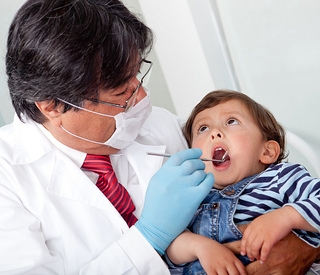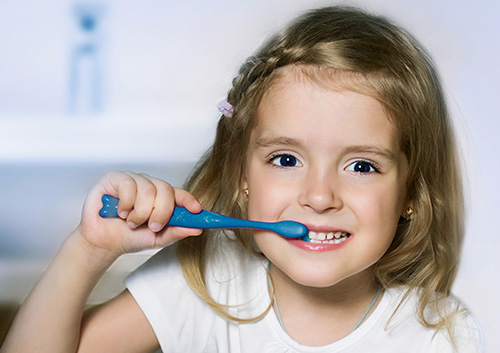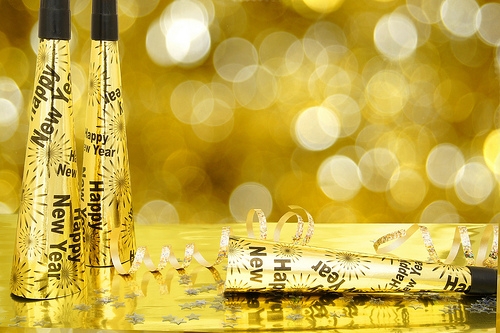January 19th, 2022

First aid training is a must when you are a parent. You can put on a bandage with your eyes closed. Perhaps even apply butterfly tape to avoid stitches. What about a dental injury? Do you have a checklist in mind on what to do when a tooth is knocked out, broken, or displaced from impact? All of these situations happen often and should be in a parent’s emergency training regiment. Luckily Dr. Diane Colter and our team are here to be a resource for such an incident!
Children’s most common dental injury is chipping a front tooth. It is so common that it seems like a right of passage. Say, for example, a two year old trips and hits her front teeth on the tile floor. First, check to see if the teeth have been broken to the nerve. You can tell if you see layers and a pinkish center. Then, wiggle each tooth and make sure it is not loose. If the teeth feel firmly in place, that is a good sign. Even if they are a little loose, the teeth will tighten again with time. If she develops a severe temperature or bite sensitivity then you know treatment is needed, which may include a root canal. If there are minor symptoms that diminish with time, continued observation will be fine.
Knocking out a tooth is also common and requires more attention than observation alone. As soon as possible, locate the tooth, touch only the crown (not the root), and rinse any debris gently with milk or water. Place it back into the tooth socket as soon as possible. The American Association of Endodontists states a tooth has a high chance of survival and retention for life if it is re-implanted within five minutes or up to 60 minutes if soaking in milk or saline solution. Our team at All About Kids Dentistry know many parents are nervous about the thought of doing this alone, but not to worry, our team is here to help!
Here’s another dental emergency example: Your child takes an elbow to the mouth during a basketball game and severely displaces a tooth but does not knock it out. What to do? First, apply light pressure in an attempt to move it back into place. Be extremely careful not to use excessive force. Place a cold pack for swelling and contact our office as soon as possible.
A dental emergency can be frightening. It is often messy and painful. The best initial reaction is to remain calm, and remember that we are here to help! Contact us at our Dallas office if your child encounters a dental emergency.
January 12th, 2022

First word, first step, first haircut, first… toothbrush? While it may not be considered a typical milestone, choosing the right first toothbrush is an important first step in your child’s future dental health.
The time to start brushing is when your baby’s first tooth appears. Until then, you have probably been using a clean, moist washcloth or gauze to carefully wipe your baby’s gums. Continue that gentle treatment with a toothbrush designed for infants. Look for a toothbrush designed especially for infants and toddlers, with extra-soft bristles and a small head for tiny mouths.
When your toddler is ready to try brushing for the first time, there are many options to make learning the proper technique enjoyable for both of you! Extra-soft bristles and small brush heads again are important for young children, and brushes are available with colorful patterns and designs to charm any child. There are brushes available with handles designed for easy gripping, right-handed and left-handed options, and even electric models.
No matter which brush you choose, Dr. Diane Colter and our team recommend:
- Use soft bristles and a brush head sized to fit your child
- Use the proper amount of toothpaste (when your child is old enough to spit out toothpaste instead of swallowing)
- Replace the toothbrush every three months, or earlier if it is frayed
- Always supervise your young child while he or she learns to brush
- Don’t forget to schedule checkups every six months at our Dallas office!
You probably won’t be preserving your baby’s first toothbrush in your baby book, but teaching your child the proper way to brush with the right toothbrush can lead to a lifetime of dental health. And that’s a milestone to celebrate!
January 5th, 2022

A dental sealant is a liquid that is applied to the teeth. The sealant hardens and provides a protective coating that is designed to reduce cavities and create a smoother tooth surface. Dental sealants are clear or white; they do not take away from the appearance of teeth. You can think about this treatment as being similar to varnish that protects a wood floor.
Sealants are not the same as fluoride treatments. The application is similar, but sealants are a semi-permanent protective coating. Dr. Diane Colter and our staff recommend that sealant applications for children begin soon after molars erupt, first molars around the age of six, and second molars around the age of 12.
Simple Application
Having sealants applied is not uncomfortable at all. First, your child's teeth will be cleaned and dried. A gel is applied, which helps the sealant adhere to the tooth, and then is rinsed away. Your child's teeth are dried again and the sealant is applied. A few seconds of exposure to a light source may be used to cure the sealant and make it semi-permanent. Sealants should last for a long time, normally between five and ten years.
Sealant Benefits
The coating on the surface of your child's teeth reduces the amount of acid contact. Normal acids in foods that are consumed can eat away at the surface of teeth. Bacteria also react to plaque formation and create more acid in the mouth. These small pits or weakened areas are prone to caries or cavity formation. Preventing cavities is a much better choice than drilling and filling damaged teeth.
A sealant also helps to smooth the chewing surfaces of your childn't teeth. The smoother surface is not as likely to retain small particles of food and bacteria. Your child's mouth stays cleaner and food is not left behind to form acids. The protective application can also be used on other teeth that have a rough surface, to protect the grooves or pits from decay.
After the sealant is applied, your child still needs to take proper care of his or her teeth. Regular brushing and flossing is required. Dr. Diane Colter may recommend fluoride treatments to strengthen and protect your child's teeth further.
If you have any concerns about sealants, please discuss them with during your child's next appointment at All About Kids Dentistry. We want your little one's teeth to stay healthy for life.
December 29th, 2021

Watching the clock tick down the final seconds until midnight, many of us- All About Kids Dentistry included- feel nostalgic about the passing year and hopeful about the new one to come. New Year’s Eve is one of the most widely celebrated holidays in the world, with over-the-top celebrations taking place in dozens of countries. The Gregorian calendar, which is widely used in Western nations and around the world, was implemented in 1582. Since that time, December 31st has marked the final day of the year, with midnight heralding the beginning of a brand new year. In the United States, New Year’s Day is a public holiday; government offices, schools, public organizations, and many businesses are closed for the day. Ponder the following fun facts as you think about your plans for the holiday:
- Approximately one billion people watch the New Year’s Eve ball drop in Times Square, New York City. This televised event is one of the most iconic New Year’s celebrations in the world. For many years, watching the ball drop meant tuning in to Dick Clark’s Rockin’ New Year’s Eve, an iconic television special dear to the hearts of many viewers.
- The idea for the New Year’s Eve ball came about because of a citywide ban on fireworks. Before 1907, when fireworks became illegal in New York City, celebrations included an elaborate fireworks show. The large, glittering, illuminated ball was developed as an alternative. Although the first ball was heavy at 700 pounds, the modern New Year’s Eve ball is made of Waterford crystal and tips the scale at six tons!
- The top five New Year’s resolutions are: to lose weight, quit smoking, get a new job, return to school, or increase personal savings. However, approximately 88% of New Year’s resolutions fail. But don’t let that discourage you! Resolutions are most likely to succeed when they are clear, achievable goals. Setting out a concrete plan to achieve your resolution also boosts your chances of success.
- Eating black-eyed peas on New Year’s Day is said to bring good fortune in the new year. Collard greens, cabbage, and ham hocks are also considered lucky foods to enjoy. Just steer clear of the chicken or turkey dinners; eating poultry is a bad omen for the year to come.
Whether you plan to stay in Dallas, or head out into the crowds to watch the ball drop in Times Square, New Year’s Eve is a time to enjoy friends and family. Send your loved ones well wishes for the New Year, and look for that special someone to share a midnight kiss with for good luck!


 (972) 233-4439
(972) 233-4439 Dallas
Dallas Schedule Now
Schedule Now





 Website Powered by Sesame 24-7™
Website Powered by Sesame 24-7™